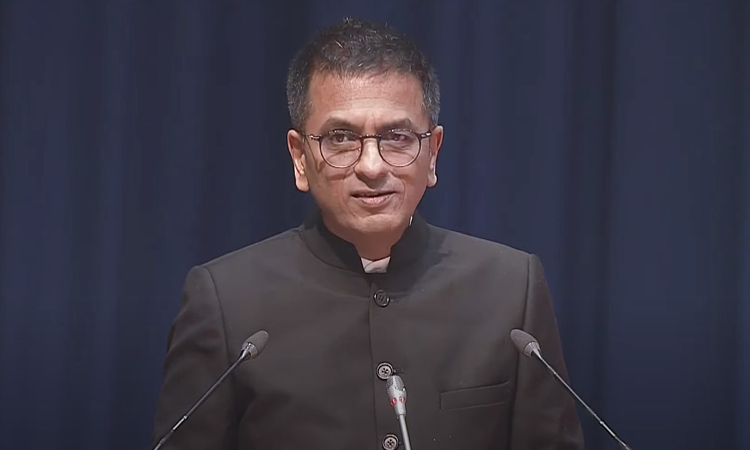Morality Of Dominant Classes Influences Law Making : CJI DY Chandrachud
Amisha Shrivastava
17 Dec 2022 10:57 PM IST

Next Story
17 Dec 2022 10:57 PM IST
The Chief Justice of India D. Y. Chandrachud on Saturday said that Dr. Ambedkar was making a revolutionary statement by dressing in a three-piece suit to reclaim his community's identity. "When Dr. B. R. Ambedkar dressed in a three-piece suit, he was making a revolutionary statement. He crushed the code of conduct that was prescribed by the oppressor caste through his clothing choices...
